[Opening of the 3rd Diplomacy Security Standing Committee]
“Diplomatic and Security Solutions to North Korea's Nuclear Issue for Unification”
The NUAC Diplomacy Security Standing Committee (Chief: Hong Kyu-dok) held its 3rd Diplomacy Security Standing Committee meeting to deal with “Diplomatic and Security Solutions to North Korea's Nuclear Issue for Unification” on Feb. 22 at 1:00 pm.
Members analyzed the dramatically changing unification environment after the 4th nuclear experiment and long-range missile provocation. Moreover, they debated on seeking diplomatic and security solutions ultimately for unification to North Korea’s nuclear issues.
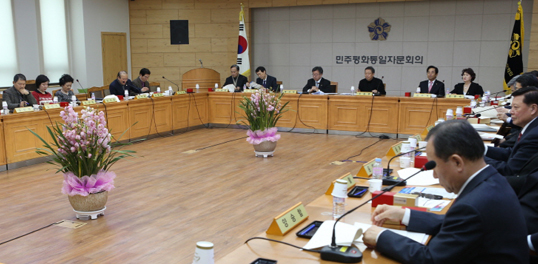
View of the Standing Committee Conference
“Since the South-North relations have stagnated, we need to seek ways to combat North Korean provocations and resolve these hardships,” said Chief Hong Kyu-dok, who has the highest expectations from the Diplomacy Security Standing Committee out of all NUAC Central Committees. He also asked members to provide good policy suggestions.
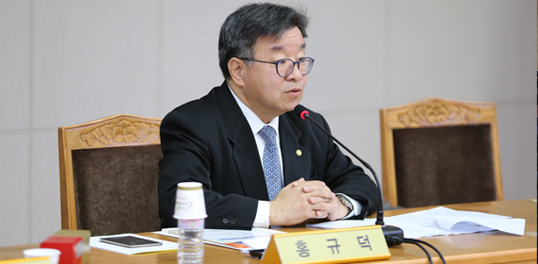
Chief Hong Kyu-dok Presiding over the Conference
The Committee meeting kicked off with three presentations followed by one designated debate and free debate by all participants.
Jin Chang-soo, President of the Sejong Institute, gave a presentation on "Diplomatic and Security Solutions to North Korea's Nuclear Issue for Unification." According to him, North Korea has achieved dominance over the North-China relationship and stabilized internal authority by means of the 4th nuclear experiment. “In the short run, North Korea, as a nuclear power, is likely to offer nuclear disarmament negotiation to the United States and escalate security risks in the Korean peninsula as a sign of opposition to the sanctions imposed by international and relevant states. In the long run, it is highly possible for North Korea to make efforts to miniaturize-lighten-diversify nuclear technology. Moreover, North Korea will probably enhance nuclear capacity before the United States form a new government in 2017 and offer negotiations to the United States based on their nuclear technology,” he explained.
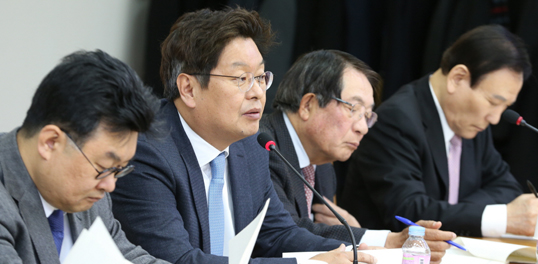
Jin Chang-soo, President of the Sejong Institute
Mr. Jin cited the necessity of the following options for future policies against the North: setting clear targets for policies against North Korea’s nuclear issues; tailored sanctions with maximum international support; coming up with strategies that South Korea could independently implement; expanding South Korea-US extended deterrence; and discussing the implementation and usage of South Korea-US strategic asset in the Korean peninsula.
The second presenter, Professor Kim Heung-kyu of Ajou University’s Political Science and Diplomacy Dept., noted in the theme of “North Korea’s Nuclear Threat and South Korea’s Diplomacy: China’s Response” that Northeast Asian politics have been divided into trilateral polars vs vs and stressed that South Korea’s task is to secure China·Russia’s support advantageously.
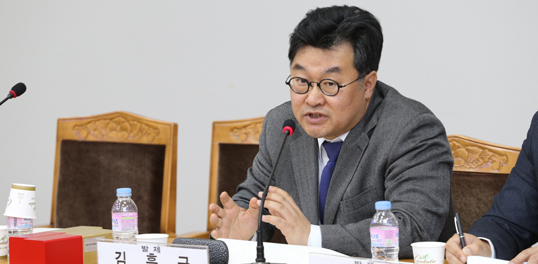
Professor Kim Heung-kyu of Ajou University
According to Professor Kim, we need to think intelligently between the traditional meaning and comprehensive meaning of security. “Moreover, ultimately taking both US and China into account matches our geopolitical interest and national power. Additionally, the deployment of THAAD should not be an issue of confrontation among South Korea·US·China but an issue of cooperation, and we should double our efforts to improve South Korea-led security capacity,” he added.
According to the last presenter, Professor Eom Gu-ho (Hanyang University, Graduate School of International Studies), in his theme of “Iran Nuclear Deal and Its Implication for North Korea’s Nuclear & Russia’s Stance Regarding the North Korea’s Nuclear Issue and Five-Party Talks,” it is good that the US now has more time to deal with North Korea’s nuclear issue, although the settlement procedure of Iran’s nuclear negotiations cannot be applied to North Korea’s nuclear issue right away.
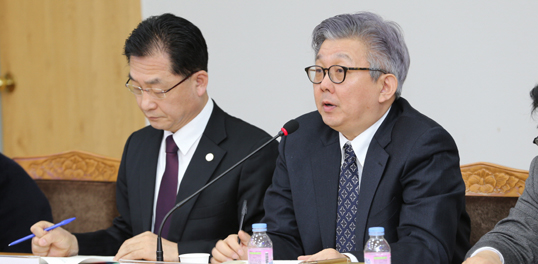
Professor Eom Gu-ho of Hanyang University
Moreover, Professor Eom stressed that it is important to keep a good relationship with Russia not just for maintenance reasons. “Without the South Korea·Russia relationship, the actual effectiveness of policies against China is halved, and preparing for both strong and appeasement policies against the North is inevitable. Unfortunately, economic cooperation between South Korea and Russia is likely to shrink considerably because the Russian economy is currently in a state of crisis. Therefore, managing South Korea’s economic relationship is a matter of urgency,” he said.
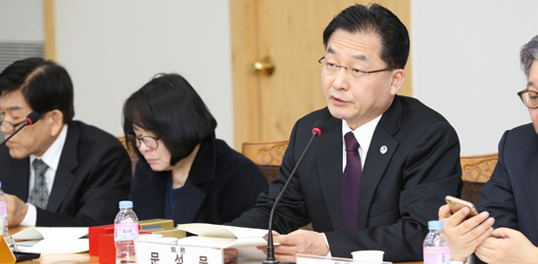
Moon Seong-mook, Director of the Unification Strategy Center of the Korea Research Institute for National Strategy
According to Director Moon Seong-mook (Unification Strategy Center of the Korea Research Institute for National Strategy), there can be no peace and unification in this land without resolving North Korea’s nuclear problem. He cited the need for a fundamental approach, unlike before.
In the session that followed, there was a heated debate on the presentation and variety of recommendations.
Starting with the Diplomacy Security Standing Committee, the first quarter of the Standing Committee will be held until Feb. 26, and policy suggestions from it will be comprehensively proposed to the Chairperson at the end of March.







